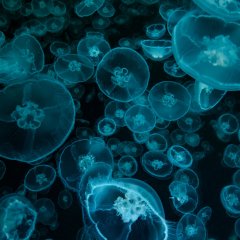Ocean School is a free environmental education resource for students in grades 5-12. Inspiring and immersive multimedia resources featuring linear and 360˚ videos, VR/AR, interactive media and hands-on projects and activities are offered in English and French. Cross-curricular content spans science, social studies, language arts and more.
World Ocean Curriculum - Marine Species

Gulf of Maine Humpback Whale Curriculum
Marine mammal resources for teachers and students.
A learning tool about whales, interconnected species and organisms, climate change and humanity. A Cape Breton University senior seminar community action project. Modules include anatomy, benefits, species and geography, tipping points, citizen science, future research, and much much more.
These activities will help your students gain a better understanding of toxic and harmful algal blooms. Each module consists of background content material and related standards-based activities.
Sealtag.org has a wealth of information for educators and students on remote monitoring (telemetry) and marine mammals as well as a hands-on STEM curriculum for 6th-12th grades aligned to Ocean Literacy Principles and Science Content Standards.
From PBS Online, contains information, teaching activities, quizzes, photography and more. Activities designed for grades 5-7 (with extensions for lower and higher grades).
An incredible journey: A series of educational resources about Pacific salmon including curriculum for grades 4 and 5, a board game and a children's book all to promote salmon stewardship. Provided by Fisheries NOAA.
Offers school assembly programs complete with a set of thematic, multi-disciplinary curriculum materials. Choose from the following program topics: animal adaptations, manatees, sharks, whales, kelp forests, coral reefs, volcanoes, or ocean careers & technology, Grades K-8.
The National Marine Sanctuary Program aims to provide teachers with resources and training to support ocean literacy in America's classrooms. Lesson plans, exciting activities for students, possible research projects, and extensive background information for teachers. Grades 3-12.
A collection of information and classroom activities covering: oceans, human impact, weather, satellite imagery, remote sensing, Antarctica, global climate change, lobsters, turtles, freshwater issues, and more.

